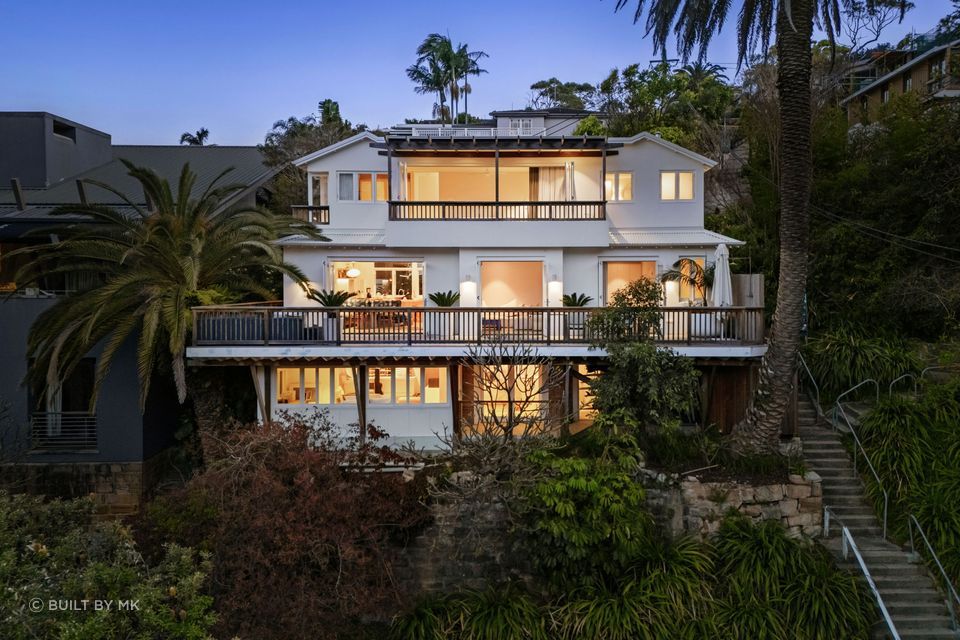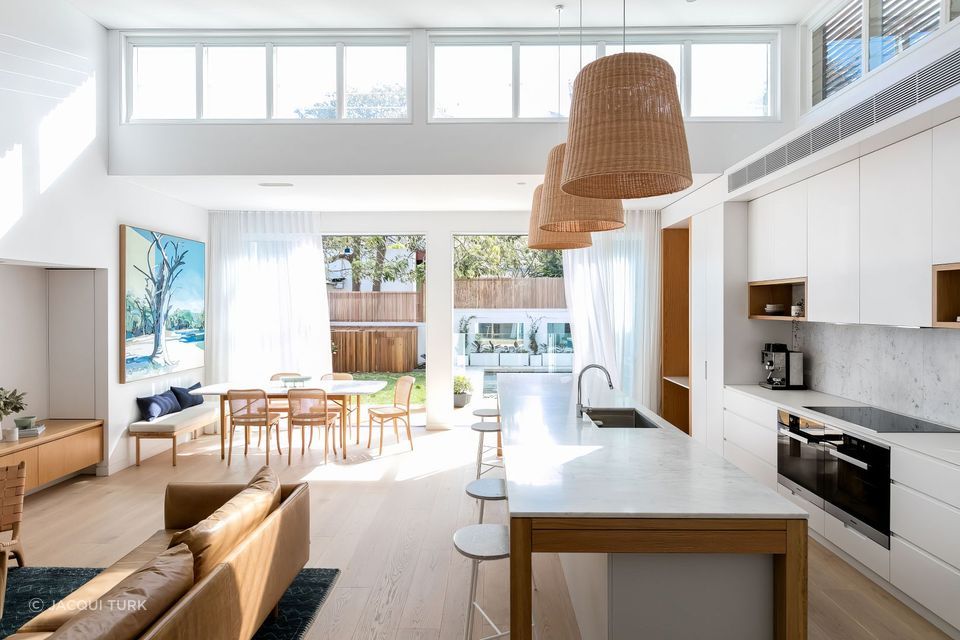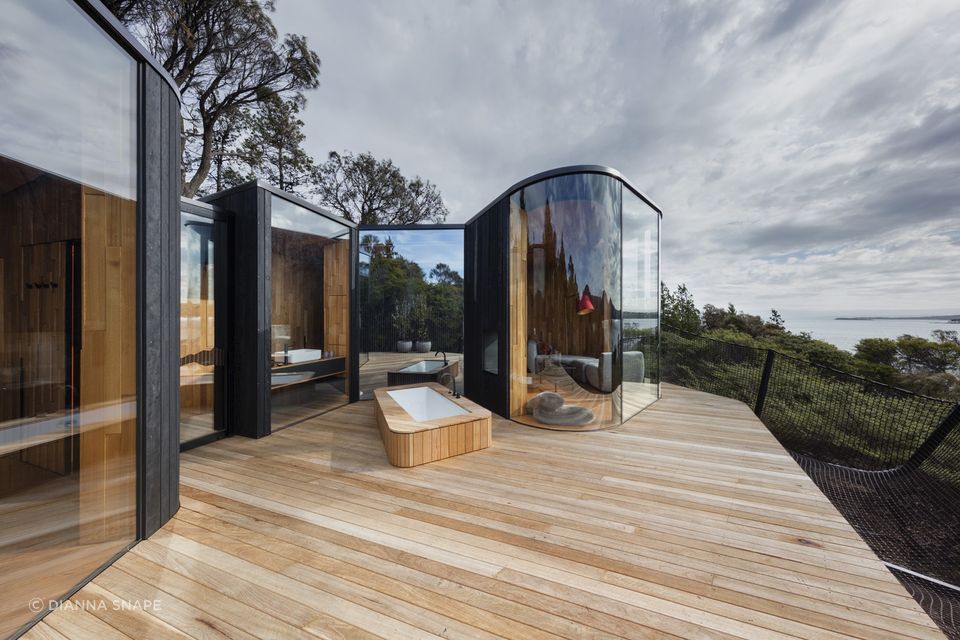How to get and compare builder quotes for your new build project
Written by
10 October 2024
•
10 min read

A successful residential construction project is often the result of a strong collaboration between all parties involved which starts from the very outset of the planning and design phase. An important part of this is gathering quotes from a number of builders, which will ultimately inform your final choice. Having a strong and robust approach is crucial, given how influential the builder will be in the success of your project, making it a decision you won't want to take lightly.
Documentation to prepare in advance
In nearly all circumstances, the more detail you can provide a builder, the more accurate their quote will be. This is often referred to as the "tender package" and it gives the builder all the necessary technical information they require and allows them to better understand the scope of the project as well as your wants and needs. Documents that a builder will find useful include the following:
1. Detailed architectural plans and drawings
Ideally, you'll be able to provide a full set of architectural drawings to the builder including things like the site plan, floor plans, elevations, sections, and details. This will cover most of the technical details like the project's location and boundaries, its layout and room dimensions as well as its height and views from different angles.
2. Specifications document
A specifications document is important as it includes all the particulars to do with the types of materials (i.e. timber, concrete) and finishes (i.e. tiles, paint) you want to use. You can also define your preference for brands, fixtures and products which will typically include things like kitchen cabinetry, bathroom fittings, lighting choices and more.
3. Engineering reports
Structural engineering reports have detailed information about load-bearing structures like foundations, beams and columns which enables the builder to account for the correct materials and construction materials. Soil and geotechnical reports are equally important as provide details about the soil classification and composition which inform the type of foundation and excavation work that will be required. It also tells them if there are potential issues and if any soil stabilisation or drainage will need to be considered.
4. Site information
Some of this will be covered in the above documents but anything else specific to the site, like details about access for construction teams/equipment, noise restrictions, connections to utilities or old structures that need to be demolished first are all important site-specific factors that should be acknowledged.
5. Scope of work (SOW)
The scope of work (SOW) is a document that clearly states who is responsible for doing what in order for a project to reach completion. It describes tasks, deliverables and responsibilities, providing clarity and establishing expectations for what needs to be done. Due to the complexities involved, your architect will help put this document together.

How to find reputable builders
An important part of the process of obtaining a quote is to first find reputable builders to send them to. This can be easier said than done as there are over 50,000 house construction businesses in Australia which includes a wide range with respect to calibre and quality. Given how protracted a building project can be, the last thing you want to do is waste your time on professionals who aren't going to be good enough for the job at hand.
Where to start your search
A great place to start your search for a good builder is ArchiPro, which features only the best builders from across Australia who have been handpicked and vetted for their experience, reputation and track record for success.
Each builder has their own profile which contains all the details you need (location, services, previous projects, testimonials and more) for you to make an initial assessment of their suitability for your own project. It's a great, fast-track option to make those first connections to get you started.
This isn't to say you can't use other means to find a builder, like word-of-mouth, Google and social media searches, industry association websites etc but those will likely be more involved as you'll need to go to different sources for all the information and you may need to do extra checks to be absolutely sure about a builder's credentials.
Traits and qualities to prioritise
Firstly, you'll want to ensure that a builder is properly licensed in the state or territory in which they're operating and you may also want to check they are registered with organisations like Master Builders Australia (MBA) or the Housing Industry Association (HIA).
It also pays to prioritise builders with experience in projects similar to your own. This is particularly important if your project is specialised in some way through design or construction and you've got a strong foundation of knowledge to rely on.
Good communication skills are a must for obvious reasons which is something you'll gleam more during a face-to-face meeting but can still get an impression for in emails and over the phone. Strong reviews, references and testimonials are also a great measure of customer service and satisfaction.
Understanding whether a builder promotes sustainability is good from an environmental perspective but can also show they are skilled in modern building techniques and standards.
Finally, warranties and guarantees show confidence and integrity in a builder's work, giving you peace of mind that any errors or defects will be addressed once the job is done.
Related article: Demystifying the role of a builder and how to find the right professional for your project

How to request a quote
Once you've gathered your documents and created a shortlist of different builders to consider, you're more or less ready to reach out with quote requests.
You can initiate this with an introductory email or phone call first to briefly explain your project to see if they are interested/available before sending all your documentation for the full quote. There's no point wasting anyone's time if a builder can't take on any new projects from the outset. If they do, you can then send them your more detailed tender package which they can use to feed into their quote.
For most projects, it's worth getting at least three builder quotes, giving you a chance to compare a few different options. In most situations, you'll be charged for a builder quote, as they can be very detailed reports (sometimes about 30 pages worth of work) but this early investment is well worth it and will end up only a very small amount of your overall spend.
Things to expect in a builder's quote
Most builders will have a comprehensive template they use for building quotes which typically includes the following information:
- Itemised cost breakdown — materials, products, labour, subcontractors, equipment, permit approvals, site preparation, demolition waste clean-up etc
- Projected timeline — start and completion dates including key milestones along the way
- Provisional costs and allowances — estimates for items that haven't been decided and those that can't be fully determined
- Inclusions and exclusions — clearly states what is and is not covered
- Payment schedule — stipulates when payments are due
- Warranties and insurance details — for workmanship, products, defects/issues, home warranty insurance etc
- Contract terms — proposed contractual terms and conditions including dispute resolution processes and delay clauses

How to compare quotes from builders
The best method for comparing builder quotes for most is to do so in a structured, step-by-step process once all the quotes have been received. This does require a bit of time and effort but the tips below will help streamline this process so that you end up with the right builder for the job sooner rather than later.
1. Create a spreadsheet
A spreadsheet is a handy way to capture and compare the key aspects of each quote in an extremely efficient way. As mentioned previously, the builder quotes can be quite dense, and a spreadsheet will allow you to itemise that information and bring it all together, making comparisons that much easier.
2. Compare itemised costs
While each quote will have a total amount for an instant comparison, it's important to look closely at the itemised costs to see where the differences are in product, labour, materials and more. This will obviously help you identify where the differences are, and from there you can drill down to try and understand why.
3. Highlight big discrepancies and omissions
Leading on from the previous point, it's important to highlight any large discrepancies between items as well as any omissions between quotes. The bigger the difference or omission, the more you should want clarity as to why. It could be down to a different choice in product/material/subcontractors which could raise issues about quality that you'll want to get your head around to make an informed choice. You'll also want to compare the stated inclusions and exclusions, as these can often be different from one builder to the next.
4. Review provisional costs and allowances
There will be a number of items in your quote that will be provisional on things that can't be totally costed for one reason or another. It's important to see how each builder estimates these and what allowances they give for this to go up or down. If one appears to be significantly lower than the other it's worth questioning as it may come back to haunt you as a cost blowout.
5. Look at the timelines
Time is money — a sentiment that rings very true for any building project. How each builder interprets the project in terms of time will likely have a huge impact on overall costs, especially when it comes to labour costs. Casting a critical eye over these is crucial as the more precise this estimation is, the better chance you'll stay within your budget. If one quote has a significantly shorter timeline, you'll want to be confident that they will deliver on it because if they don't, you'll be looking at a much higher bill.
6. Check the warranties and contract terms
While your instinct will be to quite rightly focus on what the different builders are saying they will do and what products they will use, it's also equally important to compare the fine print for the guarantees/warranties they offer as well as the terms of the contract. This includes payment schedules and how the builder is asking to be paid, whether it's upfront payments, linked to milestones or dates etc. This can often catch people out as significant details can be overlooked in dense text, so if you're not comfortable doing this yourself, it may be worthwhile to get your lawyer to check it over.
7. Seek clear communication and think about long-term value
Last but not least, it's good to look at the overall clarity of the building quote received as this can be indicative of the communication skills of the builder themselves. A builder quote that is vague or hard to decipher could be an early red flag about a lack of transparency and poor communication to come. Thinking about a quote with respect to long-term value is also important, given that new build homes are a long-term investment for most. If you're going to be living in the home, you'll also want to the think about how your choices will impact your quality of life for the years you intend to reside there — a factor that shouldn't be underestimated.

Understanding and comparing quotes with confidence
As you can see, there is a lot that goes into requesting, receiving and comparing builder quotes as part of a new build construction process. However, investing time at this stage could save you a lot of stress and anguish in the long run, and those that do rarely have regrets. Remember, a new build project is an enormous undertaking and a major investment, if not the biggest in your life, so the choices you make early need to be done with a delicate balance of care and confidence which comes from the knowledge you acquire and put into practice.
Related article: Why build a home in Australia? The benefits, challenges and solutions